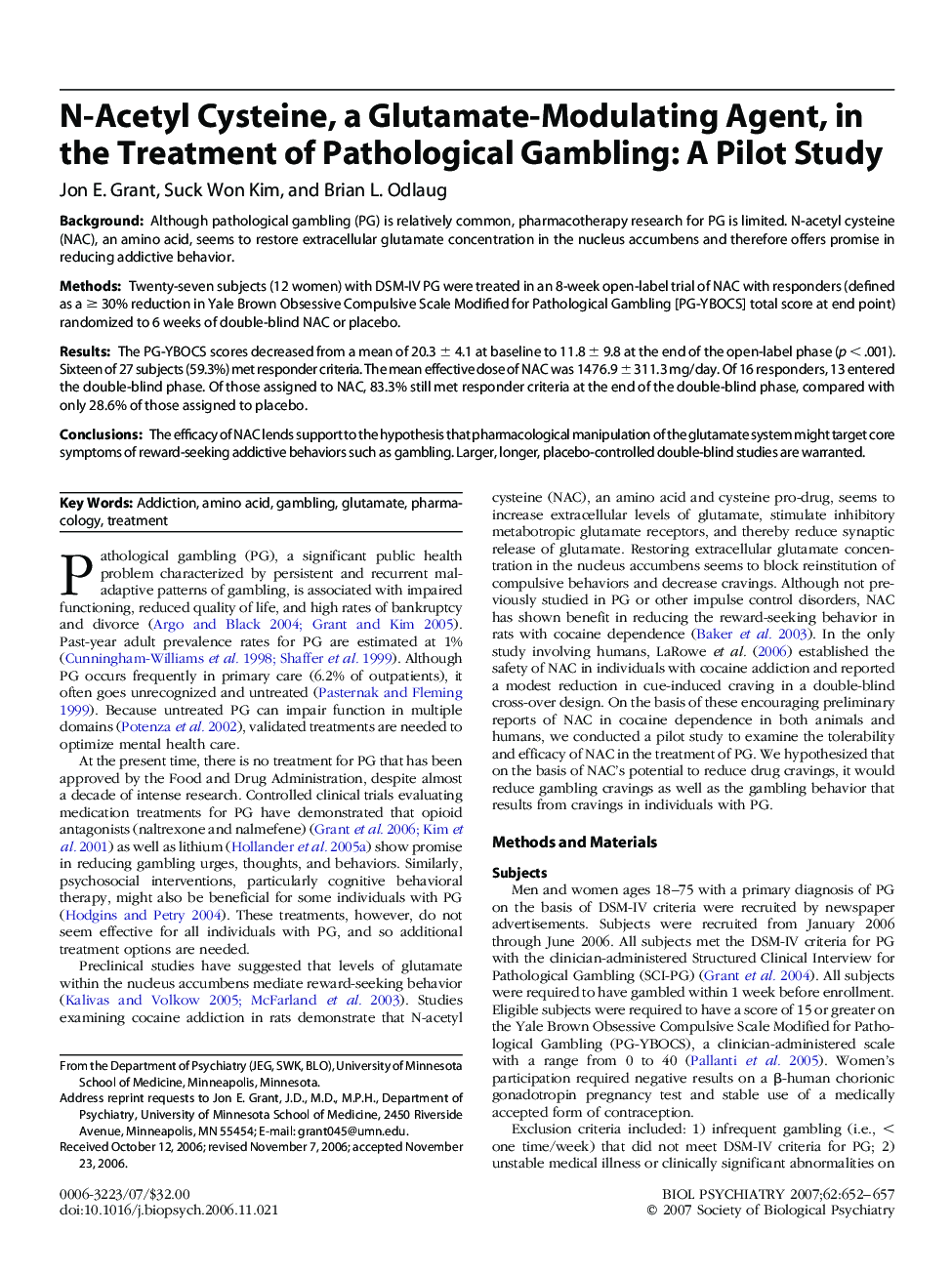| کد مقاله | کد نشریه | سال انتشار | مقاله انگلیسی | نسخه تمام متن |
|---|---|---|---|---|
| 4180689 | 1276615 | 2007 | 6 صفحه PDF | دانلود رایگان |

BackgroundAlthough pathological gambling (PG) is relatively common, pharmacotherapy research for PG is limited. N-acetyl cysteine (NAC), an amino acid, seems to restore extracellular glutamate concentration in the nucleus accumbens and therefore offers promise in reducing addictive behavior.MethodsTwenty-seven subjects (12 women) with DSM-IV PG were treated in an 8-week open-label trial of NAC with responders (defined as a ≥ 30% reduction in Yale Brown Obsessive Compulsive Scale Modified for Pathological Gambling [PG-YBOCS] total score at end point) randomized to 6 weeks of double-blind NAC or placebo.ResultsThe PG-YBOCS scores decreased from a mean of 20.3 ± 4.1 at baseline to 11.8 ± 9.8 at the end of the open-label phase (p < .001). Sixteen of 27 subjects (59.3%) met responder criteria. The mean effective dose of NAC was 1476.9 ± 311.3 mg/day. Of 16 responders, 13 entered the double-blind phase. Of those assigned to NAC, 83.3% still met responder criteria at the end of the double-blind phase, compared with only 28.6% of those assigned to placebo.ConclusionsThe efficacy of NAC lends support to the hypothesis that pharmacological manipulation of the glutamate system might target core symptoms of reward-seeking addictive behaviors such as gambling. Larger, longer, placebo-controlled double-blind studies are warranted.
Journal: Biological Psychiatry - Volume 62, Issue 6, 15 September 2007, Pages 652–657